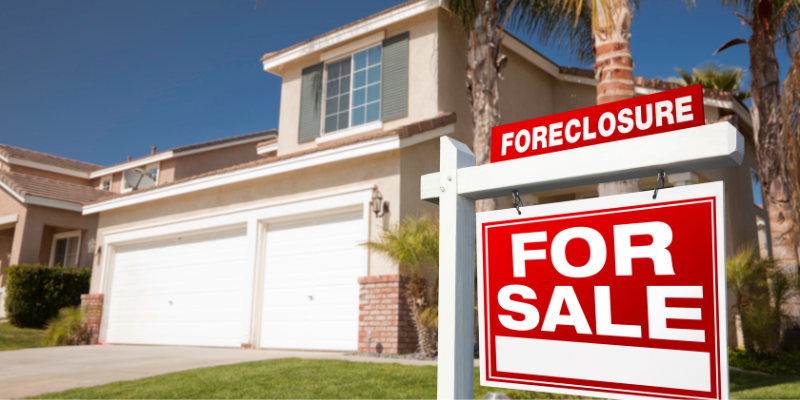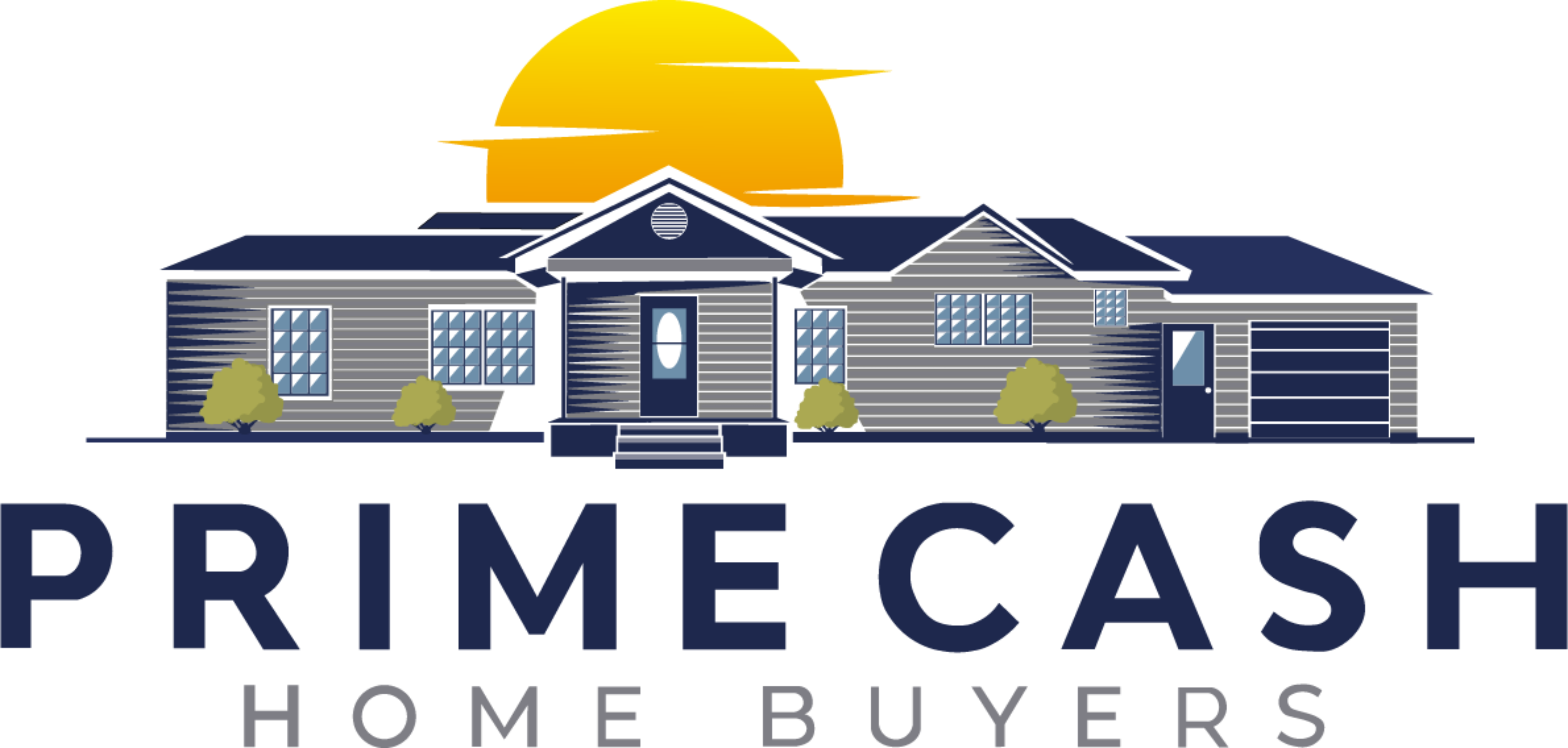
Understanding the Foreclosure Process in Georgia
Being familiar with the foreclosure process is essential for Georgia homeowners considering listing their properties for sale due to financial difficulties. Foreclosure in Georgia is mainly non-judicial, which means it won’t go through the court system, making the procedure faster.
This lack of court involvement means lenders can start foreclosure processes right after the borrower defaults on the mortgage. Homeowners usually receive a notice of default, and they can remedy the default within a short period, or foreclosure will ensue.
Considering the auction date, the window of opportunity is only 30 to 45 days, which means one must act almost immediately to seek loan modifications, short sales, or identify buyers before the auction date. Knowledge of the timelines and processes enables homeowners to avoid losing their homes through foreclosure.
Working with seasoned real estate experts will help the individual understand the gaps in Georgia’s foreclosure laws while simultaneously guiding the individual to handle their unique situation.
Legal Requirements for Selling a Foreclosed Property in Georgia
Understanding the legal intricacies of Georgia’s foreclosure sales is vital for a smooth sale of a foreclosed property. Georgia employs a non-judicial foreclosure process free of court procedures and adheres to pre-defined legal frameworks.
Homeowners must be aware that lenders must issue a notice of default no less than thirty days before commencing foreclosure. During the foreclosure process, the lender is responsible for marketing the sale in the county’s official newspaper four weeks before the auction date.
Sellers must also pay attention to redemption rights for Georgia real estate. Working with real estate professionals who know the local foreclosure laws is crucial since they can help explain the disclosures and documents that must be filled out according to the state’s legal requirements.
Addressing these legal matters effectively ensures that there are no violations and can help eliminate possible conflicts that may arise during the sale process.
Preparing Your House for Sale During Foreclosure
Preparing your home for sale in the Georgia real estate market can risk losing potential buyers, so great care should be taken to enhance the property’s appeal. To maximize your home’s beauty, declutter, clean, and properly maintain every room so the house feels welcoming and buyers can easily imagine themselves living there.
Minor issues like chipped paint, leaky faucets, and broken shutters should be dealt with to avoid leaving a bad impression on the property. Do not forget to give equal importance to the exterior of the home. Mow the lawn, clean the pathways, and look after the shrubs and flowers for better curb appeal.
Consider staging important rooms to showcase the best angles while maximizing available space. This will be useful when navigating buyers in Georgia’s real estate market and undoubtedly increase attractiveness. Moreover, using neutral color schemes assists in depersonalizing spaces, allowing buyers to envision how they would personalize the space easily.
To conclude, a seasoned real estate agent who understands the unique selling proposition of Georgia real estate in foreclosure will significantly help in pricing and marketing the home due to their in-depth knowledge of specific tactics for selling homes in these situations.
Prime Cash Home Buyers helps homeowners facing foreclosure by offering fast, fair cash offers and handling all the details. This allows you to avoid further financial stress and sell your home quickly with minimal hassle.
Strategies to Sell Your Home Quickly in a Georgia Foreclosure
In case of a looming foreclosure, it is imperative to devise a solid plan to sell a house fast in Georgia’s real estate market. One notable step is setting a reasonable price to attract many buyers looking for discount properties.
Improving a house’s curb appeal goes a long way in inviting buyers. Better interior staging helps buyers to picture themselves in the house, consequently increasing the chances of a quick sale. Enter the market with a specialized foreclosure agent, as they are very familiar with the market and can help significantly with the complex paperwork.
Moreover, marketing your house on social media and other sites expands the reach to active buyers. Selling to cash buyers or working with real estate investors focused on distressed properties accelerates the process.
By completing maintenance and repairs before listing, you can ensure smoother negotiations and reduce potential objections. Maintaining prompt, responsive communication with interested buyers helps keep the momentum going and allows you to sell quickly, especially in Georgia’s competitive foreclosure market. However, if you’re looking to simplify the process, you can also sell a house as-is to attract buyers ready to move fast without the need for further improvements.
Navigating the Real Estate Market During Foreclosure in Georgia

Navigating the real estate market during foreclosure in Georgia requires a strategic approach to maximize your property’s potential value and minimize financial loss. Understanding Georgia’s foreclosure process is crucial, as it involves specific timelines and legal requirements that can impact your ability to sell.
Working with a knowledgeable real estate agent who deals with foreclosures could help you understand pricing for a particular region. Repairing and improving specific aspects of a home that make it appealing to buyers is centered on selling the house and advertising its key features.
Effective marketing on social media, printed media, and offers like open houses can easily facilitate an individual’s search for a home. Being open and honest with buyers about a home’s foreclosure also makes negotiating a sale much smoother.
Knowing what is happening in the market daily is critical, especially in a place like Georgia, where it eases the buyers’ burden, meets the lender’s standards, and ensures a smooth sale even in quite challenging conditions.
Financial Implications of Selling a Home in Foreclosure
Understanding the monetary impacts is critical when selling a home in foreclosure in the context of Georgia’s real estate market. Homeowners dealing with foreclosure need to consider the effect on their credit score, which is vital for accessing credit in the coming years.
Additional legal fees accrue during the foreclosure process, which must be paid off along with the remaining balance on the mortgage for the property to be sold. Homeowners in certain situations may be subject to a deficiency balance when selling their home, which is the case when the sale price is less than the amount owed on the mortgage.
Moreover, in some short sale cases, tax consequences may be associated with mortgage forgiveness debt. Homeowners must seek advice from a legal or real estate expert in Georgia to understand and navigate these complicated decisions during this difficult time.
Have questions about the financial impact of selling your home in foreclosure? Contact us today—we’ll guide you through the process and help you make informed decisions every step of the way.
How to Price Your Home Competitively During Foreclosure
Foreclosure is never straightforward, but even during tough times, you should price your home carefully in Georgia’s real estate market to attract buyers as soon as possible. Understanding prevailing market trends is essential since it allows you to set a price that captures the home’s real value while considering any mortgage obligations.
A good starting point is looking for recently sold comparables in your area that are similar in size, in the same condition, and located in comparable regions. This information helps you find the best possible listing price.
A local real estate agent who deals with foreclosures is familiar with market fluctuations and can help you with your pricing strategy. Getting a professional appraisal to estimate your home’s valuation might also be helpful, objectively.
Sometimes, a price slightly lower than market value can attract more buyer interest, creating a bidding war. Being open regarding the foreclosure situation but emphasizing notable selling points or renovations can attract more buyers and help close the deal much faster.
Marketing Tips for Selling a Foreclosed Property
The Georgia real estate market considers foreclosure properties an opportunity that can be effectively marketed to streamline the sale process. Advertisements should focus on the property’s most appealing aspects, and the use of professional images along with virtual tours will provide more exhaustive coverage.
Showcasing foreclosed properties virtually can attract buyers faster. Additionally, staging the home can help buyers understand its full value. Listing the properties on Zillow, Realtor.com, and similar websites will significantly improve visibility.
Facebook and Instagram allow you to reach a wider audience quickly. For an effective listing strategy, work with a Realtor who understands the local area and specializes in foreclosure sales.
A greater response from genuine buyers can be achieved by pricing the property based on comparable sales and calculated pricing. Captivating listings that highlight conveniences, recent updates, and other selling points will encourage buyers seeking affordable Georgia homes to search within the hot real estate market.
Working with Real Estate Agents to Sell a House in Foreclosure

In Georgia, selling a home that is in foreclosure can be quite challenging. However, seasoned real estate agents can help ease this burden considerably. An adept agent has sufficient knowledge of the local market and foreclosure sales to help the homeowner strategically price the home to garner fast, favorable attention.
In addition, real estate agents have access to a vast pool of buyers and investors looking to buy foreclosed properties. They can negotiate well with lenders, help the seller get buyout prices, and explain the time-bound and critical requirements of a foreclosed home sale.
Their skills are particularly helpful in managing documents because they help avoid legal complications and simplify the transaction process. With marketing techniques, agents can highlight even the most unattractive features of the house. Therefore, their home, even in stressed condition, can attract more attention from potential purchasers.
Working with a certified real estate specialist helps sell the house faster, reducing the burden of dealing with foreclosure processes in Georgia.
Negotiating Offers on a Home Undergoing Foreclosure
When negotiating offers on a home undergoing foreclosure in Georgia’s real estate market, it’s crucial to understand the dynamics at play to maximize your chances of securing a favorable deal. Start by clearly understanding the property’s current market value by consulting local real estate experts or conducting a comparative market analysis.
This knowledge empowers you to recognize reasonable offers and avoid undervaluing your home. Additionally, be prepared to work closely with investor home buyers in Georgia, who may see the foreclosure as an opportunity to acquire property below market value.
Openness is essential when engaging with interested buyers, particularly those eyeing a house in foreclosure. You might need some patience and flexibility, as a concession is likely while negotiating a deal. Besides the home’s monetary worth, its value-added features should be highlighted, too.
It is also advisable to work with professional real estate agents who are knowledgeable about Georgia’s foreclosure laws. They would help you get some ideas on managing negotiations within the legal framework. If you are proactive and knowledgeable, your chances of selling a foreclosure home increase greatly.
Legal Assistance and Resources for Sellers in Foreclosure
Dealing with a home foreclosure in Georgia’s real estate landscape is challenging, but knowing the help and resources available to the sellers is essential. Homeowners who need assistance should seek the help of a specialized real estate lawyer in Georgia to look into options, as they will know the foreclosure laws.
Recognized attorneys can help Georgia residents decide whether they want their loan changed, a short sale, or a deed-in-lieu sale. Moreover, contacting some HUD-accredited housing counseling agencies can be very helpful, as they have foreclosure assistance programs and financial help schemes specially designed for Georgia residents.
Working with these professionals ensures that state rules are observed and gives homeowners the necessary information to manage the selling process of their homes in foreclosure successfully.
How to Handle Mortgage Lenders When Selling a House in Foreclosure
Selling a house in foreclosure in Georgia’s real estate market requires a balanced blend of strategic negotiation skills and effective communication tactics with mortgage lenders. Effective communication with your mortgage lender becomes critical when you forecast payment challenges.
Your payment challenges can be solved with loan modification or even short sale, avoiding foreclosure and, in many cases, mitigating losses for all parties involved. Equipped with knowledge of the foreclosure process and the timelines and legal requirements involved will significantly enhance one’s negotiation capabilities in Georgia.
Collecting all relevant documents, like financial statements and hardship letters, shows clear communication and can make conversations with the lender much easier. Moreover, with the help of a proficient real estate broker who has handled distressed properties, one gets expert assistance throughout the selling process.
Through professional advice and monitoring market conditions, homeowners can effectively manage and negotiate with mortgage lenders while selling their homes, even in these difficult situations.
Tax Consequences of Selling a Home Undergoing Foreclosure

Grasping the tax implications is essential when selling a home in foreclosure in the Georgia real estate market. Homeowners under the threat of foreclosure might run into hefty tax consequences, especially if the lender cancels a part of the mortgage debt.
The IRS regards forgiven debt as taxable income and refers to it as ‘cancellation of debt.’ However, some exemptions might apply under the Mortgage Forgiveness Debt Relief Act of 2007 for forgiven debt on primary homes, provided specific criteria are satisfied.
Because of these complexities, homeowners must consult a tax professional or a financial specialist who understands Georgia’s real estate and foreclosure landscape. Equally important, they want to know how some laws may apply to their situation and how to lower their tax burden during this challenging period.
Georgia real estate is ever-changing, and these considerations help homeowners decide whether to sell a foreclosed property.
The Role of Short Sales in the Georgia Housing Market
In Georgia’s real estate dealings, short sales are undoubtedly of great importance to owners who are on the verge of having their property repossessed. A short sale is the sale of a property for less than what is owed, with permission from the lender, to avoid repossession.
In certain circumstances, this may be a helpful option in Georgia, where property values have been volatile. A successful short sale usually depends on the seller’s excellent negotiation skills, which, in most cases, a good real estate agent who understands the Georgia law on foreclosure would offer.
Such experts help handle complicated lender negotiations and ensure all required paperwork is correctly completed. Homeowners who choose this route will likely suffer less in terms of their credit rating than those who decide on foreclosure.
Additionally, it provides an opportunity to manage financial distress more effectively by potentially eliminating remaining mortgage debt with the lender’s agreement. Cash house buyers in Augusta and surrounding cities in Georgia often seek out short sale properties, presenting motivated sellers with quicker solutions and helping streamline transactions in this dynamic real estate landscape.
Understanding the nuances of short sales within Georgia’s legal framework is crucial for sellers and buyers aiming to capitalize on these opportunities.
Common Mistakes to Avoid When Selling a House in Foreclosure
In Georgia’s real estate landscape, homeowners trapped in foreclosure have a hard time without Guidance, owing to many reasons, including recovering funds and making a profitable sale, which is one of the primary ones. Many homeowners lose out on potential prospects after a foreclosure due to a lack of punctual professionalism. Some work alongside novice agents who promise a lot but do the bare minimum, leaving the homeowners worse off financially.
Not having a forecast for the market could crumble many new potential sales in pursuing a profitable house sale. Hovered pricing and a lack of attention to accrued damages are the most prevalent. In hoping to garner attention, many homeowners overlook the basic repairs needed to enhance a house’s beauty and assist in its value market.
Not revealing problems with the property can complicate things legally and discourage potential buyers. The seller is responsible for providing accurate information regarding the home’s condition.
Another common mistake is not paying attention to the local market. Knowing the market’s state in Georgia enables the seller to set the right goals and devise a plan that guarantees a successful sale.
Understanding Deficiency Judgments After Selling a Foreclosed Property
When selling a foreclosed property in Georgia, it’s crucial to understand the potential for deficiency judgments. A deficiency judgment occurs when the sale of the foreclosed home does not cover the outstanding mortgage balance, leaving a deficit.
In Georgia’s real estate market, lenders have the legal right to pursue this remaining balance from homeowners even after foreclosure. Sellers need to know that if their property sells for less than what is owed, they may still be liable for this financial shortfall unless they negotiate otherwise.
Understanding Georgia’s specific laws regarding deficiency judgments can help sellers navigate foreclosure more effectively and potentially limit their liability. Lenders must seek court approval for a deficiency judgment within 30 days after the foreclosure sale.
Homeowners facing foreclosure should consult a real estate attorney knowledgeable about Georgia’s foreclosure laws to explore options such as negotiating a waiver or settlement with the lender. Awareness of these aspects can aid in making informed decisions during the challenging process of selling a foreclosure home.
Impact of Bankruptcy on the Sale of a House in Foreclosure
Navigating the sale of a home in foreclosure within Georgia’s real estate market can become even more complex when bankruptcy is involved. Filing for bankruptcy may temporarily halt foreclosure proceedings through an automatic stay, which offers homeowners a brief respite to reorganize their finances.
However, this pause is not permanent and does not eliminate the underlying debt or the foreclosure risk. Selling a house during bankruptcy requires careful coordination with the bankruptcy court and the lender to ensure compliance with legal requirements.
Homeowners must obtain permission from the court to sell their property, and proceeds from the sale are typically used to pay off outstanding debts according to the bankruptcy plan. Working closely with an experienced real estate agent who understands Georgia’s unique foreclosure laws and can navigate these challenges effectively is crucial.
Moreover, understanding how different types of bankruptcy—such as Chapter 7 or Chapter 13—affect your specific situation is essential for developing a strategic approach that minimizes financial loss while maximizing potential benefits from the sale.
Can I Sell My House While I’m in Foreclosure?
Yes, you can sell your house while it’s in foreclosure in Georgia’s real estate market. However, it’s crucial to act quickly and strategically during this process.
When facing foreclosure, homeowners should consider consulting with a real estate agent experienced in foreclosure sales to navigate the complexities of Georgia’s housing market. Timing is critical, as selling your home before the foreclosure process advances too far can help avoid detrimental impacts on your credit score.
Pricing your home competitively and marketing it effectively can attract potential buyers even under time constraints. Understanding Georgia’s foreclosure laws and working closely with legal professionals can facilitate a smoother transaction.
Remember that negotiating with lenders for possible short sale options might also be viable if the home’s value exceeds the outstanding mortgage balance. Taking proactive steps early on increases the likelihood of selling your home and alleviates the financial pressure of foreclosure proceedings in Georgia.
How Long Does It Take to Foreclose on a House in Georgia?
In Georgia, the foreclosure process is typically non-judicial, meaning it can proceed quickly once initiated. The time it takes to foreclose on a house in Georgia largely depends on how swiftly lenders move through the required steps.
Generally, the foreclosure process can be completed in as little as 37 to 60 days after the lender files a notice of default and advertises the foreclosure sale for four consecutive weeks. However, this timeframe can vary based on individual circumstances, such as whether borrowers attempt loss mitigation options or file for bankruptcy, which could temporarily delay proceedings.
Homeowners facing foreclosure should act promptly to explore alternatives like loan modifications or selling their home before foreclosure completes. Understanding how long it takes to foreclose in Georgia allows sellers to strategize effectively and potentially leverage expert tips for navigating the state’s real estate market efficiently during this challenging time.
What Is the 120-Day Rule for Foreclosure?
Understanding the ” 120-day rule ” is crucial when navigating Georgia’s real estate market, especially when selling a foreclosure home. This rule is part of federal regulations designed to protect homeowners facing foreclosure.
Mortgage servicers are prohibited from initiating a foreclosure process until the homeowner is more than 120 days delinquent on their mortgage payments. This period allows homeowners to explore various options to avoid foreclosure, such as loan modifications, short sales, or even selling the property outright.
Swift and strategic action is essential for those looking to sell their home during this critical window. Consulting with real estate experts specializing in foreclosures can provide valuable insights into effectively leveraging this timeframe within Georgia’s unique real estate landscape.
By understanding and adhering to the 120-day rule, sellers can better position themselves for a successful transaction while potentially mitigating some of the financial and emotional stress associated with foreclosure proceedings.
Need to sell your house in Georgia fast and hassle-free? Prime Cash Home Buyers offers fair cash deals, no repairs needed, and handles everything for you. Call (706) 670-6543 for a no-obligation offer today!
| EFFECTS OF FORECLOSURE | FORECLOSED HOMES | FORECLOSURE AUCTION | FORECLOSING | MORTGAGES | ATTORNEYS |
| LAWYER | MONEY | ENTER A JUDGMENT | PRICES | DEBTOR | TAXES |
| TAXED | HOMEBUYERS | EQUITY | EVICTION | HUD’S | PRIVACY |
| CONSENT | PHONE | TELEPHONE | STATUTES | CREDIT REPORT | |
| CREDIT HISTORY | CREDIT RECORD | ADVERTISEMENT | PHONE NUMBER | TELEPHONE NUMBER | SHERIFF |
| CERTIFIED MAIL | REGISTERED MAIL | MORTGAGE SERVICING | LIENS | COURTHOUSE |
Helpful Georgia Blog Articles
- Selling Your Georgia Home Without A Realtor
- Sell Your House During A Divorce In Georgia
- Selling An Inherited House In Georgia’s Real Estate Market
- Maximize Your Profit: How To Sell A House As-is In Georgia
- Selling Your Home In Foreclosure In Georgia
- How to Sell a House in Probate in Georgia
- Who Pays the HOA Fees at Closing in Georgia

